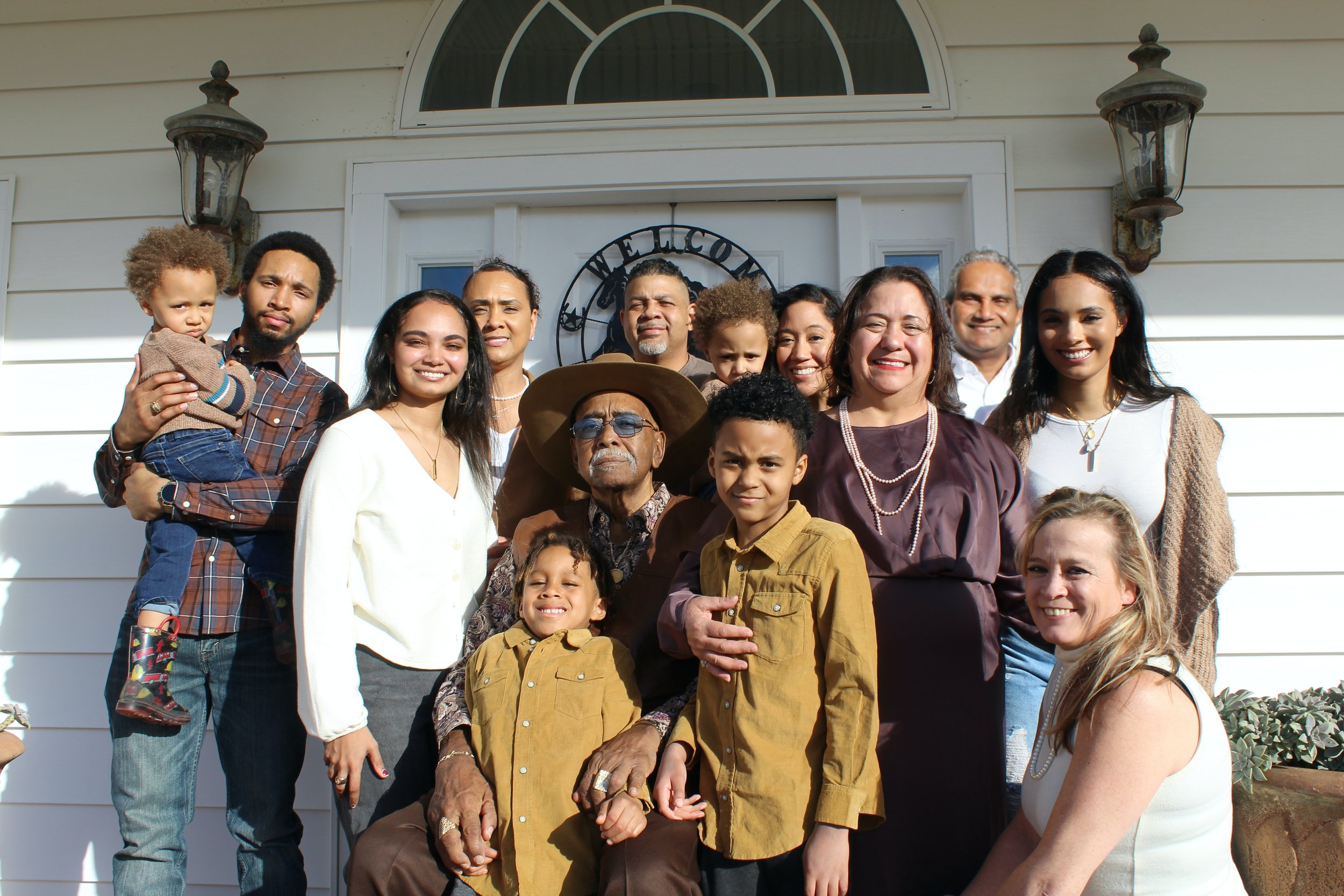THE BLOG

New Years has recently passed and many of us have set resolutions or goals we want to accomplish in 2023. For many of us, as great and important as these goals may be, we might find it difficult to stick to and achieve them. Many times we might find it difficult to start working towards our goals, or if we start, we might stop shortly after beginning. Although there are several factors that may contribute to our difficulties in achieving our new goals, one common one is that these goals are often too large or too vague. One strategy we can use to help us toward reaching our goals is by setting “SMART” goals. SMART is an acronym for Specific, Measurable, Attainable, Realistic and Timebound. These components work together to help to keep us motivated as we start and progress toward our goals.
Whether it be with our partners, friends, family or a stranger in a grocery store, disagreements, arguments and conflict can happen. They are a normal part of our relationships and even the healthiest of relationships experience them. However, just because everyone experiences them, does not make them any easier to deal with. In fact, in the heat of the moment, even the smallest of disagreements can feel like they begin to spiral out of control and end up turning into a much bigger problem. To navigate these disagreements, there are some strategies we can use to reduce the intensity of the disagreement and possibly even end it in a better place than it began. Although it “takes two to tango”, just one person changing their behavior and responses in a disagreement can change the course of the conversation.
It’s 2023 & social media platforms such as Facebook, Instagram, Snapchat, Twitter & Tik Tok are all the rage. Technology allows us to live in a world where we can connect socially with others without actually getting together in person. Engaging in social media produces dopamine in the brain, otherwise known as the “feel good” chemical. This rush of dopamine is what motivates us to continuously check our social media apps in the search to feel good.
There are some benefits to social media use such as reconnecting with family & friends that live around the world. Finding new friends in your community & getting involved in social causes that need awareness. Connecting socially if you are housebound or live remotely without access to others. Lastly, it gives us the ability to seek emotional support from others, while providing this type of support in return. Therefore, social media is not all bad & can be used in moderation to enhance our lives.

What is self-talk & why does it matter? Self-talk is just that, the way you speak to yourself. It is your inner voice comprised of conscious thoughts, beliefs & biases that creates the monologue in your head. Whether you are aware of your patterns of self-talk or not, it is there. Self-talk has the ability to tear you down or lift you up- it all depends if your self-talk is positive or negative.
If your inner voice is consistently negative, it acts as a harsh critic & promotes pessimism in your life. Negative self-talk decreases self-esteem & confidence, causing you to feel badly about yourself. It will keep you from succeeding and it will fool you into thinking you will always fail. Negative self-talk causes endless cycles of rumination that lead to increased levels of depression & anxiety. This negativity often distorts reality causing you to see the world through a negative lens. So, I ask you, how can you possibly feel good or have a good day when your thought stream is consistently negative? The bottom line is, you can’t. Keep reading & you will learn how to change those negative thoughts into positive ones in order to live a happier life.
Therapist Favorites
Explore a curated selection of blog posts recommended by our therapists, designed to provide valuable insights, practical tips, and expert advice on a variety of mental health topics.
MEET OUR THERAPISTS

As much as we would like to never experience grief, it is a universal experience that is unfortunately inevitable. Grief is the acute feeling of shock, overwhelming sadness & pain when someone passes away. It comes on suddenly, is strong & usually knocks the wind out of us. Grief comes in waves & may impact you at different times in your life. For example, if you just received a promotion at work, your first instinct might be to call your mother to share the good news. As you pick up the phone, you suddenly remember that your mother passed away a few years ago. The realization that she is no longer living, causes feelings of grief to wash over you. This is how grief ebbs & flows. Grieving on the other hand is the process of how we adapt to this loss in order to move forward with our lives. Grieving is fluid & demonstrates the relationship we have with grief as it changes over time.

When many of us think of “wellness”, the first thing that may come to mind is our physical or mental health. Although our physical and mental health are important aspects of our wellness, there are many more contributing factors. Debbie Stoewen identifies eight separate, but equally important, components of wellness (2017). These eight components, named the “Dimensions of Wellness”, are independent of one another, but can also significantly influence and impact each other as well. These dimensions don’t require equal attention paid to them, but neglecting one can have negative consequences on the others, including our overall wellness.

It’s that time of the year again. St. Patrick’s day can be a highly anticipated celebration for many people. Many times there are parade’s and day long events that often include excessive alcohol intake. People usually start early and day drinking can be something glorified and bragged about on social media. If you live in or around the Jersey Shore you know that parade season can last a few weekends. This trend can leave a lot of triggers for people who are recovering and trying to protect their recovery with substance use. Even if you want to go to the parade, the temptation and environment can be difficult when you see people inebriated, slurring their words, and being rambunctious. The boardwalk’s starting to come alive again. Bars are flooded and food concessions are open.
All Recent Posts

If you are searching for this, you may be feeling the pressure and stress from rapidly approaching deadlines and final exams. Perhaps the rest of the semester went without issue. Maybe you were living carefree, completing assignments whenever you could and sometimes skipping a class just to have a ‘me’ day. Perhaps you attended meticulously, taking very precise notes and studying very hard. Regardless of your college experience, final exams can be a very vulnerable and tense time for many students. If you are feeling the effects of that with late night study sessions, skipping meals and sacrificing sleep to catch up on assignments and material you might have skimped over before, here are some things that can help you with that.

When an unexpected situation or conversation occurs that does not go in your favor, it is second nature to act upon the first thoughts and feelings that come to mind. However, these thoughts and feelings may not always be the most effective way to handle whatever the situation may be. It is important to respond to situations rather than to react. You may be thinking, what is the difference? Reacting and responding are similar in nature as both come from a place of wanting to be heard or understood. However, there are differences between these two.

As much as we would like to never experience grief, it is a universal experience that is unfortunately inevitable. Grief is the acute feeling of shock, overwhelming sadness & pain when someone passes away. It comes on suddenly, is strong & usually knocks the wind out of us. Grief comes in waves & may impact you at different times in your life. For example, if you just received a promotion at work, your first instinct might be to call your mother to share the good news. As you pick up the phone, you suddenly remember that your mother passed away a few years ago. The realization that she is no longer living, causes feelings of grief to wash over you. This is how grief ebbs & flows. Grieving on the other hand is the process of how we adapt to this loss in order to move forward with our lives. Grieving is fluid & demonstrates the relationship we have with grief as it changes over time.

When many of us think of “wellness”, the first thing that may come to mind is our physical or mental health. Although our physical and mental health are important aspects of our wellness, there are many more contributing factors. Debbie Stoewen identifies eight separate, but equally important, components of wellness (2017). These eight components, named the “Dimensions of Wellness”, are independent of one another, but can also significantly influence and impact each other as well. These dimensions don’t require equal attention paid to them, but neglecting one can have negative consequences on the others, including our overall wellness.

It’s that time of the year again. St. Patrick’s day can be a highly anticipated celebration for many people. Many times there are parade’s and day long events that often include excessive alcohol intake. People usually start early and day drinking can be something glorified and bragged about on social media. If you live in or around the Jersey Shore you know that parade season can last a few weekends. This trend can leave a lot of triggers for people who are recovering and trying to protect their recovery with substance use. Even if you want to go to the parade, the temptation and environment can be difficult when you see people inebriated, slurring their words, and being rambunctious. The boardwalk’s starting to come alive again. Bars are flooded and food concessions are open.

Sleep is a crucial part of our lives, and it’s essential for good health. However, in today’s fast-paced society, it’s easy to get caught up in a cycle of sleep debt. Sleep debt is a term used to describe the cumulative effect of not getting enough sleep over time. This can happen if we consistently go to bed late and wake up early, or if we have poor sleep quality. When we don’t get enough sleep, our bodies start to accumulate a sleep debt, which can lead to a range of physical and mental health problems.

When an unexpected situation or conversation occurs that does not go in your favor, it is second nature to act upon the first thoughts and feelings that come to mind. However, these thoughts and feelings may not always be the most effective way to handle whatever the situation may be. It is important to respond to situations rather than to react. You may be thinking, what is the difference? Reacting and responding are similar in nature as both come from a place of wanting to be heard or understood. However, there are differences between these two.
LOOKING FOR MORE ON

LOOKING FOR MORE ON
As you go through life, it’s important to fully understand what makes up a healthy relationship. This is something that is not taught in schools & is usually learned through trial & error based on previous experiences. Personal relationships will develop within families, friends, colleagues & acquaintances. The shared experience of living, working & spending time together with similar interests is what creates emotional bonds, interactions & trusting relationships.

LOOKING FOR MORE ON
Erik Erikson (1902-1994) is a psychologist most well known for his model on psychosocial development. Erikson’s focus on the social aspects of development, and the impacts of social influences on our development, differentiated his model from others and provided a framework that would progress the field of psychology for decades to come. Erikson’s stages of development theory details eight distinct and consecutive stages one progresses through to develop a healthy sense of self.